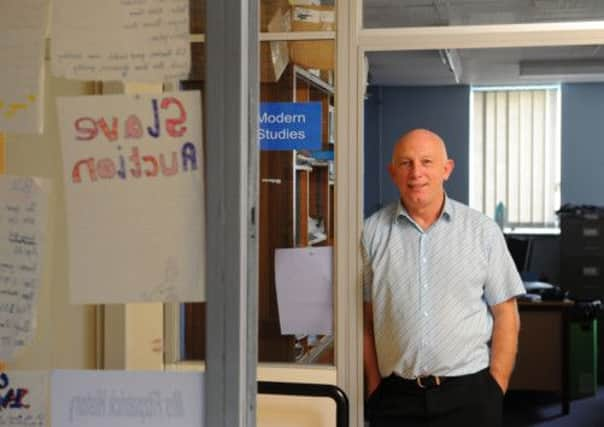Hugh Reilly: Level playing field for ASN exams


The man had garnered notoriety among greenhorn motorists for failing examinees who executed the tiniest infractions of the Highway Code; indeed, rumours abounded that a First World War poster of French General Robert Nivelle hung on his bedroom wall with its bosom-stirring words: “Ils ne passeront pas!”
Despite a dodgy hill-start, “No Pass Cass” granted me my licence. Aside from the multiple choice section, success in the driving test is subjective. Although the Driving Standards Agency has procedures in place, it is a fact that one examiner’s Lewis Hamilton is another’s Reginald Molehusband.
Advertisement
Hide AdAdvertisement
Hide AdLikewise, eradicating subjectivity in the correcting of SQA exam scripts is impossible. For example, in Higher English, marks awarded for critical essays can vary from marker to marker. While every effort is made to harmonise marking, such as holding meetings of markers to gather a consensus of what is or isn’t acceptable, the objective truth of the matter is that subjectivity is largely responsible for quirky results. If it were not so, there would be no need for an appeals system.
Recently announced measures that will reduce opportunities for subjectivity to distort the work of students with Additional Support Needs (ASN) in the new National 3 and National 4 English exams have caused uproar. Under new SQA regulations, ASN pupils will no longer be allowed to have “human scribes and readers”. As extra-terrestrial assistance is, at best, patchy, students will rely on technology such as voice-recognition and word processors when sitting the examinations.
The changes have been attacked by a shoal of public-body and interest-group piranhas: the EIS, the Scottish Parent Teacher Council and a leading charity, Children In Scotland. After power-walking his way to the barricades, Tam Baillie, Scotland’s Commissioner for Children and Young People, declared the new exam regime “unfair”.
I disagree. In my opinion, the modifications will, for the first time, actually produce a level playing field for ASN candidates. Scribes are usually classroom assistants who work with the ASN pupils on a daily basis. Inevitably, a bond of friendship develops that leads to the impartiality of the scribe being compromised. Unfairly helping a struggling ASN pupil can be a premeditated act but, in my experience, is usually caused by a caring individual sympathising with the plight of a vulnerable youngster.
On several occasions, due to staff shortages, I acted as a scribe/reader for kids sitting prelim exams. I had consciously made the decision not to give assistance but found this to be impossible. When a teenager’s oral response was clearly wrong, my right eyebrow instinctively rose. If my concerned body language failed to ring alarm bells, I’d say: “Are you sure that’s the right answer?”
Meanwhile, in a room further down the corridor, an ASN kid might have been teamed up with an assistant with either a heart of stone or a dislike for him. The inconvenient truth is that the latter kid’s test result would be a truer indication of pupil ability.
Steadfastly refusing to give a nudge in the right direction when one is fully aware assistants in the school up the road are being, erm, highly supportive, is difficult. That is why taking the human element out of the examination equation wherever possible is praiseworthy. In my view, critics insult our ASN youngsters by complaining that they can’t operate a spell-checker.
Further, the whinge that schools serving deprived areas don’t have the required IT resources is risible. Having taught in Glasgow ghettoes, I can readily confirm that secondary schools in peripheral housing estates are awash with computers and other Microsoft knick-knacks.
Advertisement
Hide AdAdvertisement
Hide AdRather than blasting off at the creation of an exam system that has greater integrity, I’ll aim my fire at the often abysmal assistance afforded to ASN pupils on a daily basis. When an assistant is not present due to illness, these kids can find themselves utterly isolated in a classroom or worse, confined to barracks; that is, sat in a baseroom, more or less left to twiddle their thumbs.
Until the everyday school experience of these youngsters is improved, I’ll pass on getting angry over plans to minimise human assistance during SQA exams.